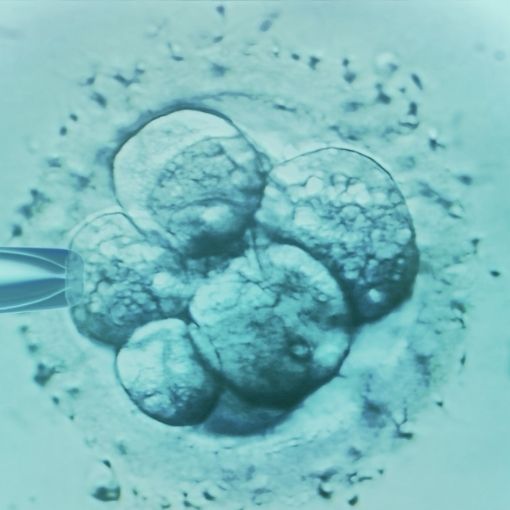
Trying to conceive can be an emotional journey for many couples. While numerous factors can affect fertility, one often overlooked aspect is exercise. Exercise not only helps in improving overall health but also plays a crucial role in boosting fertility.
Whether you are just starting to plan for a baby or have been struggling to conceive for a while, incorporating the right kind of exercise into your routine can increase your chances of conception. However, it’s important to understand that not all types of exercise are beneficial when it comes to fertility. In this article, we will explore how exercise boosts fertility, so you can make informed decisions about your fitness routine and increase your chances of successfully conceiving.
Understanding the Relationship Between Exercise and Fertility
When it comes to fertility, many factors influence your ability to conceive. While numerous medical and lifestyle factors come into play, exercise may have a significant impact. Understanding the relationship between exercise and fertility can be crucial for individuals who are trying to conceive or undergoing fertility treatments.
Exercise has been shown to have both positive and negative effects on fertility, depending on various factors such as intensity and duration. Regular moderate exercise has been associated with improved fertility outcomes, as it can help regulate hormonal levels, reduce stress, maintain a healthy weight, and improve overall reproductive health. However, excessive exercise or intense training can have the opposite effect, disrupting menstrual cycles and leading to irregular ovulation. It is vital to find a balance between physical activity and fertility goals.
Best Exercises for Improving Fertility
To improve your fertility there are many factors to consider, such as diet, stress levels, and overall health. However, one element that is often overlooked is exercise. Regular physical activity not only benefits your overall health, but it can also have a positive impact on your fertility. So, if you’re looking to boost your chances of conceiving, here are some of the best exercises to incorporate into your routine.
First and foremost, yoga is a fantastic exercise for improving fertility. Yoga helps to reduce stress and promote relaxation, which are both essential components in increasing fertility. In addition, certain yoga poses, such as the butterfly pose and the legs-up-the-wall pose, specifically target the reproductive organs, promoting blood flow to the area. Regular yoga practice not only enhances your physical well-being but also supports your reproductive health.
Another exercise that can improve fertility is walking. It may seem simple, but walking regularly can have a significant impact on your overall health. Walking helps to improve circulation, reduce stress levels, and maintain a healthy weight – all of which are crucial for fertility. It’s a low-impact exercise that can be easily incorporated into your daily routine, whether it’s walking to work, taking the stairs instead of the elevator, or going for a stroll in the evening.
Lastly, strength training is an excellent exercise for improving fertility. Engaging in resistance exercises, such as weightlifting or using resistance bands, not only builds muscle but also helps to regulate hormone levels and boost metabolism. Strength training also improves insulin sensitivity, which is essential for reproductive health. Just remember to start slowly, listen to your body, and consult with a professional trainer if you’re new to strength training.
Common Mistakes to Avoid When Exercising for Fertility
When it comes to increasing fertility, exercise can play a crucial role. However, it’s important to approach physical activity with caution and avoid common mistakes that may hinder your chances of conceiving. One common mistake is overexerting yourself with high-intensity workouts. While exercise is beneficial, pushing your body to the limits can harm your fertility. Opt for moderate-intensity workouts that focus on gentle movements and avoid excessive strain and stress on your body.
Another mistake to avoid is disregarding your menstrual cycle. Women’s bodies go through different hormonal changes throughout their cycle, which can affect their energy levels and exercise performance. It’s crucial to adjust your workout routine accordingly. For example, during the follicular phase, you may have more energy, so it’s a good time to incorporate more high-intensity exercises. Conversely, during your period or the luteal phase, when energy levels may be lower, focus on lighter exercises such as yoga or walking.
Additionally, it’s important to steer clear of excessive exercise or sudden increases in activity levels. Overtraining can disrupt your hormonal balance, leading to irregular periods and a decrease in fertility. Listen to your body and give it time to rest and recover. Remember, exercise should complement your fertility journey, not hinder it. If you’re unsure about the right exercise routine for you, it’s always a good idea to consult with a healthcare professional or a fertility specialist who can provide personalized recommendations.
Incorporating Rest and Recovery into Your Fertility Workout
When you’re trying to conceive, your body may already be under stress, so it’s important not to push it to the limit with intense workouts. Overtraining can disrupt your hormonal balance and potentially hinder your fertility. Instead, aim for moderate-intensity exercises like walking, swimming, or yoga. These activities not only help with overall fitness but also promote relaxation and reduce stress, which can be beneficial for conception.
Incorporating rest days into your fertility workout routine is essential for allowing your body to regenerate and heal. Rest days give your muscles and tissues time to repair and build strength. It’s during this rest period that your body can replenish energy stores and optimize hormone levels. Giving your body the time it needs to recover will not only enhance your overall well-being but also improve your chances of conceiving.
Additionally, don’t forget the importance of proper sleep and nutrition. Aim for 7-8 hours of quality sleep each night to support your body’s natural healing processes. Eating a balanced diet rich in fertility-friendly foods can also contribute to your overall fertility journey. Incorporate plenty of fruits, vegetables, lean proteins, and whole grains into your meals to ensure you’re fueling your body with the nutrients it needs.
How Exercise Can Impact Hormones and Ovulation
Exercise is not only beneficial for our physical health, but it also plays a significant role in regulating our hormones and menstrual cycles. Women who engage in regular physical activity often experience more regular menstrual cycles and may even improve their chances of ovulating when trying to conceive.
One of the main ways exercise impacts hormones and ovulation is by regulating insulin levels. Insulin, a hormone produced by the pancreas, helps regulate blood sugar levels. When insulin levels are out of balance, it can disrupt the production of other hormones, including those that control ovulation. Regular exercise helps to improve insulin sensitivity, which can lead to more regular ovulation and menstrual cycles.
In addition to insulin regulation, exercise also plays a role in reducing stress levels. High levels of stress can negatively impact hormone regulation and ovulation. Exercise releases endorphins, which are natural mood boosters, and can help reduce stress and improve overall well-being.
Lifestyle Factors to Consider Alongside the Role of Exercise in Boosting Fertility
Maintaining a healthy lifestyle is essential when trying to conceive. Exercise in boosting fertility plays a crucial role, however, it is important to continue the exercise during pregnancy as well. Incorporating a balanced diet, managing stress, getting enough sleep, and avoiding harmful substances are equally important. By maintaining a healthy lifestyle and addressing these factors, individuals can optimize their chances of conceiving and increase their overall reproductive health.
This post was written by the PK Women’s Specialist Clinic in Singapore.




